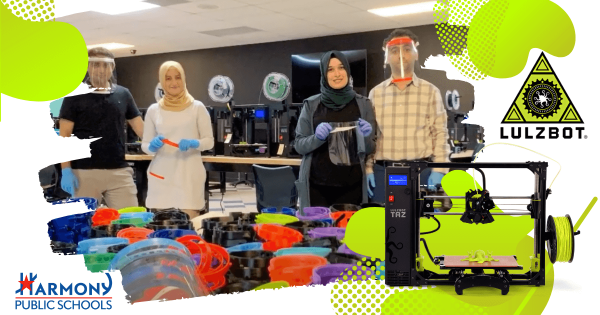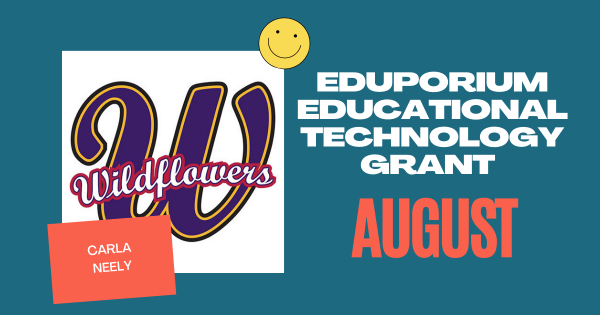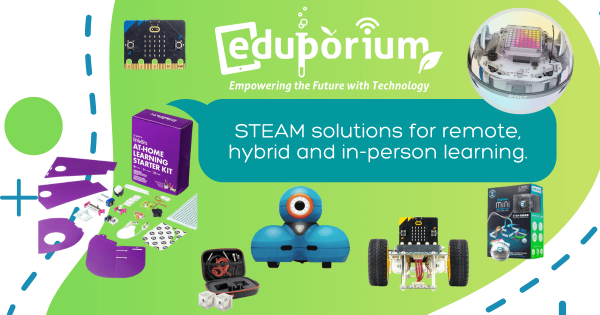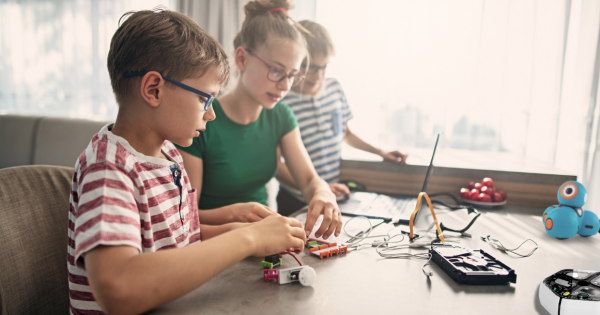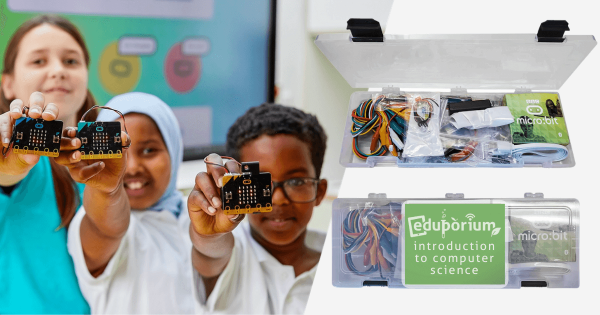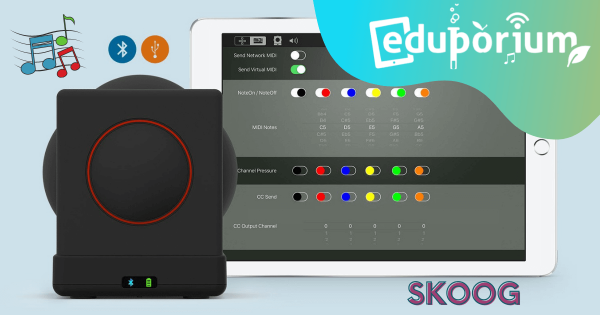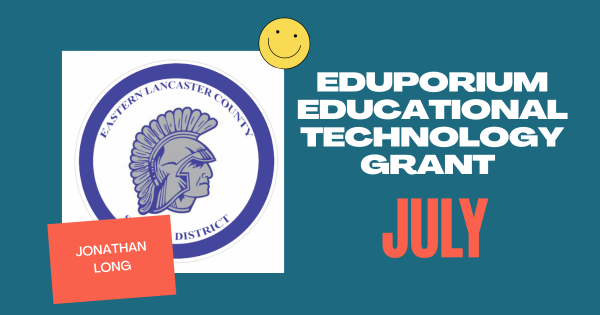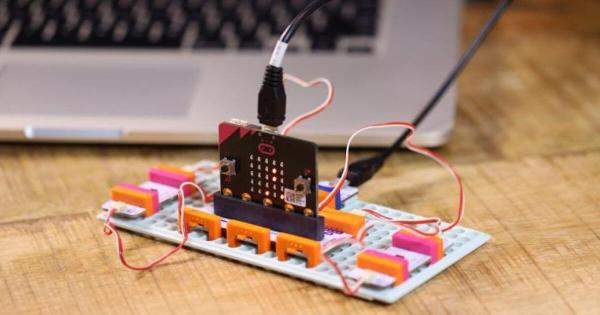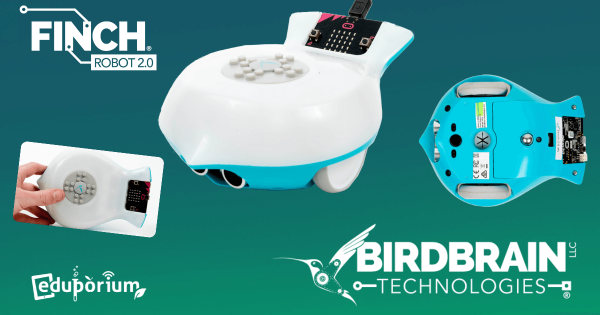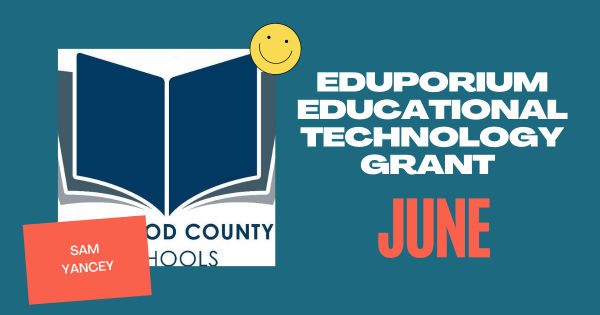When schools first started to shut down, we saw how STEM and MakerEd really began to take a back seat in favor of more traditional educational requirements as teachers tried to find a rhythm in remote learning. At the same time, however, we—and plenty of others—knew just how important and beneficial STEM learning could be.
News & Updates
In the News & Updates section of our blog, you'll find updates on many of the latest STEM developments. These include happenings from the STEM and MakerEd worlds as well as important Eduporium announcements. This is where we'll share updates on product additions, announce the recipients of our monthly educational technology grant, pass on company news, highlight upcoming events, and discuss a whole lot more when it comes to cool topics in STEM education. Beyond our STEAM coverage, we also touch on various elements of 21st century learning. These include remote instruction, special education, social-emotional learning, and equity and diversity. If it's happening in the world of education, we're interested. And, we'll offer our analysis on what's affecting students, teachers, and administrators, attaching our genuine thoughts to keep you updated.
This is an area for us to keep a repository of recent happenings. Whether it's the release of a new type of technology, any additions to an EdTech product line, the arrival of new brands to our store, or some thoughts on the current state of education, there's a good chance you'll find it here. As time has gone on, we've participated in more STEAM and makerspace events. So, we've started to keep curated collections of those experiences. You can find them all throughout the News & Updates category. As Eduporium continues to expand and we get to participate in more STEM education projects with educators in some of the country's biggest school districts, we'll share those stories, too. We hope our collective accomplishments and partnerships with members of the K–12 community inspire others to innovate in new ways!
-
Here's Our Grant Recipient For August: Carla Neely!
We’ve transitioned into another new month, and that means we have some news regarding the awarding of our EdTech grant from last month. For this latest award, we’ve presented the grant to Carla Neely, who is a fourth and fifth grade STEM teacher at an all-girls school in Cleveland, Ohio—and she works with a lot of Title I students as -
Safe STEAM with Individual Coding and Maker Tools
Like so many teachers, students, parents, and administrators, we’re uncertain about what this school year will bring, especially as school doors slowly start to reopen. Whether learning is going to be taking place in person, at home, or as part of a hybrid model, we know that we couldn’t let STEM learning opportunities fall by the wayside. -
Maker Ed in Hybrid or Remote Learning
Like fellow members of the education world, we’ve realized there’s a bit more to educating the whole child than simply ensuring they have a strong foundational background in STEM. As the school year begins, STEM remains important, but we’re also committed to ensuring students have the chance to focus on social-emotional restoration. -
STEAM Solutions for In-Person, Remote, or Hybrid Learning
Despite so much uncertainty, there’s one thing we know for sure: We don’t want students to veer off course in terms of STEM and real-world skills development, so we’ve been working on creating custom STEAM kits that can be used to help educators teach key topics, allow students to work independently, and are conducive to different environments. -
New on the Eduporium Store: The Skoog 2.0
Not only is the Skoog 2.0 awesome for amplifying student voice and helping them produce their own creative sounds, it also works with a couple of our favorite robotics tools so kids can use it in coding education as well! Keep reading to learn more about the Skoog 2.0, its compatible devices, and where to get yours! -
Our July Grant Recipient is Jonathan Long!
Jonathan Long is a middle school STEM teacher in the Eastern Lancaster County (PA) School District and a huge fan of using technology in instruction. He’s used some different EdTech tools in the past and we’re excited to be able to provide him with a new one to try—the databot. Read on to learn more about him and his STEM -
New littleBits micro:bit Adapter Now Available
A compact and affordable tool, students can use the micro:bit board to start out with beginner level programming and eventually learn to use it in creating programs with greater complexity. Its true value, however, may come in its compatibility with other teaching tools, including the newest option, the littleBits micro:bit Adapter among other educator favorites. -
Get To Know The Finch 2.0 From BirdBrain Technologies
Modeled directly after the original Finch Robot, this latest version provides teachers with a more robust option when introducing students to computer science and key STEAM concepts. It’s even viable in all levels of education from kindergarten to college and utilizes the micro:bit V2 for its processing power. Read on for more about the Finch 2.0 and its six coding -
Virtual STEAM Camp: Read About Our Grant Award for June!
Once again, we’re excited to share some news about the recipient of the Eduporium EdTech grant for the month of June! For this month’s award, we have chosen Sam Yancey, a gifted education teacher with the Haywood County School District in North Carolina! Sam is an avid lover of STEAM education and has used an extensive list of EdTech tools.




